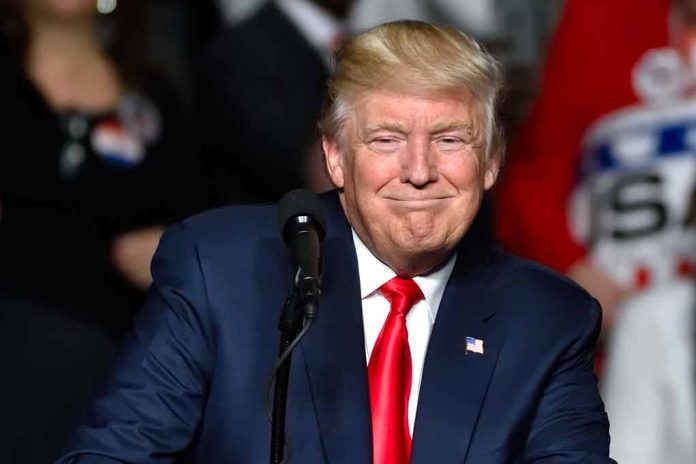
Former President Donald Trump’s recent remarks suggest he would not enforce the federal law banning the mailing of abortion pills. His stance deviates from existing legal standards and could lead to significant policy shifts. Trump’s views on reproductive rights, already a hot-button issue, might be further spotlighted with these comments.
Trump’s approach to this issue contrasts sharply with the current administration. President Biden has focused on protecting and expanding access to reproductive healthcare. Trump, on the other hand, has distanced himself from a national federal abortion ban and supports letting states decide on abortion restrictions.
A Divisive Issue in Reproductive Rights
Trump’s stance is sure to ignite further debate on reproductive rights. He applauds the Supreme Court’s decision to overturn Roe v. Wade yet also criticizes stringent state laws, such as Florida’s six-week ban. His tendency to vacillate leaves both proponents and opponents of abortion rights uncertain of his definitive policy.
“After 50 years of failure, with nobody coming even close, I was able to kill Roe v. Wade,’” – Donald Trump
There is also the question of legality regarding mailing abortion pills under the Comstock Act. Trump has yet to clarify his position on this, leaving uncertainty for both sides of the debate. At least 22 states have laws requiring abortion medication to be delivered in person, though some are currently embroiled in legal battles.
With former President Donald Trump open to restricting access to a major abortion pill, physicians are steeling themselves if he wins for the possible end of legal telehealth abortion. https://t.co/aWRTjP0CLe
— 19thnews (@19thnews) August 17, 2024
Potential Legislative and Judicial Ramifications
Trump’s stance could influence legislative and judicial decisions in this contentious arena. Project 2025’s healthcare policies include repealing Medicare drug price negotiations, denying gender-affirming care, adding work requirements for Medicaid, and eliminating ACA coverage for the morning-after pill. These efforts could redefine the accessibility of reproductive healthcare significantly.
“The states are handling the issue right now, and that’s where he’s comfortable keeping it.” – House Speaker Mike Johnson Source
As a further point of contention, Trump’s slow procession towards a definitive policy announcement on contraception has left stakeholders frustrated. His allies and anti-abortion advocates push for additional restrictions, especially around medication abortions. Trump mentioned that a policy on contraception would be announced “very shortly,” but the timeline remains indefinite.
Broader Healthcare Policy Implications
Project 2025 envisions profound changes to the healthcare system, further complicating the landscape. Proposals include defunding Planned Parenthood, reversing FDA approval of mifepristone, and making mailing abortion pills illegal. Each of these could drastically alter reproductive healthcare access nationwide.
“He said make sure that you exercise your own conscience to talk about it, share your conviction and do that in a way that makes sense to people,” – House Speaker Mike Johnson told reporters about Trump’s remarks.
Overall, Trump’s stance introduces significant uncertainty into the already complex field of reproductive rights and healthcare policy. The potential impacts on legislative and judicial processes make this a pivotal issue that could influence the future of reproductive healthcare in the United States.
“Things really do have a lot to do with the states, and some states are going to have different policy than others,” – Donald Trump













